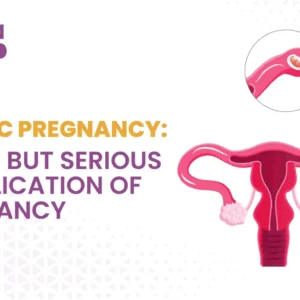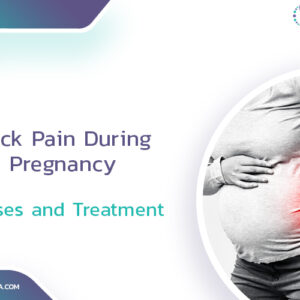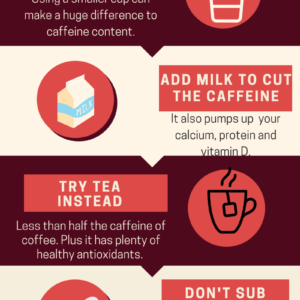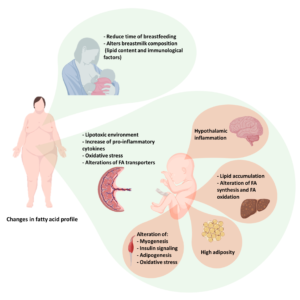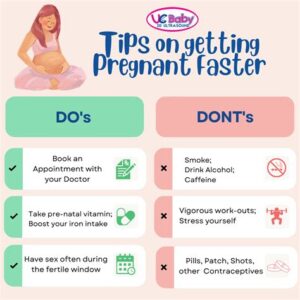
Recognizing Pregnancy Symptoms: Understanding Early Signs of Pregnancy
Pregnancy is an exciting and transformative time, but it can also bring a lot of questions and uncertainties, especially in the early stages. Recognizing the early signs of pregnancy is crucial for getting the care you need and preparing for the journey ahead. In this post, I will explore common pregnancy symptoms and the early signs of pregnancy that many women experience. By understanding these symptoms, you can better navigate the initial weeks of your pregnancy with confidence and peace of mind. Let’s delve into the details to help you identify and understand these early indicators.
What are Pregnancy Symptoms?
Pregnancy symptoms are physical and emotional changes that occur as your body adjusts to the presence of a growing baby. These symptoms can vary widely from woman to woman and even from one pregnancy to another. Some women may experience many symptoms, while others may have very few.
Common Pregnancy Symptoms
Pregnancy symptoms varies among different people.
Here are some of the most common pregnancy symptoms:
- Missed Period: One of the most obvious signs of pregnancy is a missed menstrual period. If your cycle is regular and you miss a period, it might be time to take a pregnancy test.
- Nausea and Vomiting: Often referred to as morning sickness, nausea and vomiting can occur at any time of the day. This symptom usually begins around the sixth week of pregnancy and may last until the end of the first trimester.
- Breast Changes: Your breasts may become tender, swollen, or tingly as early as one to two weeks after conception. The areolas (the area around the nipples) may also darken.
- Fatigue: Feeling unusually tired is a common early sign of pregnancy. This is due to the increase in the hormone progesterone, which can make you feel sleepy.
- Frequent Urination: As your uterus grows, it can press on your bladder, causing you to urinate more often than usual.
- Food Cravings and Aversions: You may find yourself craving certain foods or being repelled by foods you once enjoyed. Hormonal changes are thought to be responsible for these changes in taste and smell.
- Mood Swings: The surge in hormones during pregnancy can affect your emotions, leading to mood swings, irritability, and emotional sensitivity.
Early Signs of Pregnancy
While the above symptoms can appear later in pregnancy, some signs can indicate pregnancy even before you miss your period. These early signs of pregnancy include:
Early Signs of Pregnancy Before a Missed Period
- Implantation Bleeding: Light spotting or implantation bleeding can occur when the fertilized egg attaches to the lining of the uterus, usually around 6-12 days after conception. This bleeding is typically lighter and shorter than a regular period.
- Cramps: Some women experience mild cramping as the uterus begins to stretch and prepare for the growing baby.
- Bloating: Hormonal changes can cause your digestive system to slow down, leading to bloating and a feeling of fullness.
- Basal Body Temperature: If you’ve been tracking your basal body temperature to conceive, you might notice that it remains elevated for 18 days or more after ovulation.
Causes of Spotting or bleeding During Pregnancy
There are several reasons why you might experience spotting during pregnancy:
- Implantation Bleeding: This occurs when the fertilized egg attaches to the lining of the uterus. It often happens around the time your period would normally be due.
- Cervical Changes: The cervix undergoes many changes during pregnancy, becoming more sensitive and prone to bleeding, especially after a pelvic exam or intercourse.
- Hormonal Fluctuations: Early pregnancy is characterized by significant hormonal changes, which can sometimes cause light spotting.
Bleeding During Pregnancy: When to Be Concerned
While spotting is often harmless, bleeding during pregnancy can sometimes indicate a more serious issue. It’s important to distinguish between light spotting and heavier bleeding.
Potential Causes of Bleeding During Pregnancy
- Miscarriage: Heavy bleeding accompanied by cramping and pain in the abdomen could be a sign of miscarriage, especially in early pregnancy.
- Ectopic Pregnancy: This occurs when the fertilized egg implants outside the uterus, typically in a fallopian tube. It can cause significant bleeding and is a medical emergency.
- Placental Issues: Problems with the placenta, such as placenta previa or placental abruption, can cause bleeding later in pregnancy.
Early Pregnancy Bleeding: What You Need to Know
Early pregnancy bleeding can be quite common, and in many cases, it doesn’t indicate a serious problem. However, it’s essential to monitor the situation and seek medical advice if needed.
Managing Early Pregnancy Bleeding
- Monitor the Bleeding: Keep track of the amount, color, and frequency of the bleeding. This information can be helpful for your healthcare provider.
- Avoid Heavy Lifting and Strenuous Activity: Rest as much as possible and avoid activities that might exacerbate the bleeding.
- Seek Medical Advice: If you’re concerned about any bleeding during pregnancy, it’s always best to consult your healthcare provider. They can perform an ultrasound or other tests to ensure everything is progressing normally.
When to Seek Medical Help
It’s important to know when to contact your healthcare provider regarding spotting or bleeding during pregnancy:
- Heavy Bleeding: If you experience heavy bleeding (similar to a menstrual period), seek immediate medical attention.
- Accompanied by Pain: Spotting accompanied by severe cramping, pain, or discomfort should be evaluated by a doctor.
- Persistent Spotting: If spotting continues for several days or gets worse, it’s a good idea to consult your healthcare provider.
Confirming Your Pregnancy
If you experience any of these early signs of pregnancy or common pregnancy symptoms, the next step is to take a home pregnancy test. These tests are designed to detect the hormone hCG (human chorionic gonadotropin) in your urine, which is produced after a fertilized egg attaches to the uterine lining.
For the most accurate results, take the test after your missed period. If the test is positive, schedule an appointment with your healthcare provider to confirm the pregnancy and begin prenatal care. Read more on how to do pregnancy test here.
World Health has always an advocate of good health for every women and it is a responsibility of every health platform to continue this awareness.
Conclusion
Spotting during pregnancy can be a normal part of the journey, but it’s crucial to stay informed and vigilant. By understanding the potential causes of spotting and bleeding during pregnancy and knowing when to seek medical advice, you can ensure the best possible care for yourself and your baby. Always reach out to your healthcare provider with any concerns to receive personalized guidance and support.
You can read the most popular pregnancy question and answer here

